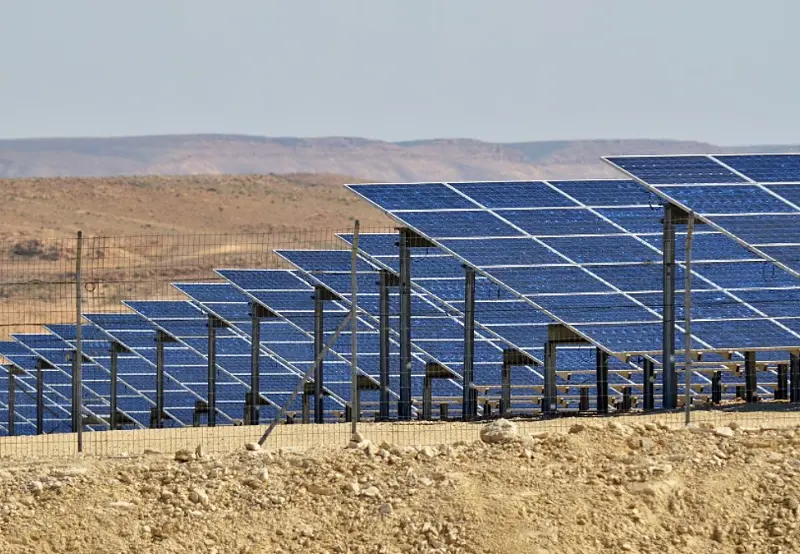The Kerala PM-KUSUM solar pump project faces scrutiny over ₹240 crore tender irregularities. Learn 7 key facts about the ANERT probe, political clash, and what’s at stake for India’s solar mission.
📑 Table of Contents
- Introduction: A Solar Dream Clouded by Controversy
- 1. What is PM-KUSUM and Why is It Crucial?
- 2. Kerala’s Role in PM-KUSUM: A ₹240 Cr Mission
- 3. Alleged Irregularities in the Tender Process
- 4. Political Firestorm: Accusations & Counterclaims
- 5. ANERT Under the Scanner
- 6. Official Probe: What the Investigation Aims to Uncover
- 7. Why This Scandal Matters: Implications for Clean Energy
- Conclusion: Lessons for Solar Governance
A Solar Dream Clouded by Controversy
The Kerala PM-KUSUM solar pump scandal has sent shockwaves through India’s renewable energy community. What began as a bold ₹240 crore initiative under the PM-KUSUM scheme is now under the cloud of suspicion, procedural irregularities, and political clashes. Energy Minister K. Krishnankutty has ordered a formal probe after opposition leader Ramesh Chennithala raised serious red flags.
This article breaks down the scandal, offering a reliable and SEO-optimised look into what happened, why it matters, and where it might lead.
1. What is PM-KUSUM and Why is It Crucial?
The Pradhan Mantri Kisan Urja Suraksha evam Utthaan Mahabhiyan (PM-KUSUM) is a flagship central government scheme designed to:
- Promote solar energy use in agriculture
- Provide energy security to farmers
- Reduce dependence on diesel
- Decentralise power generation
India aims to install 30.8 lakh standalone solar pumps and 10,000 MW of solar capacity under this programme by 2026.
2. Kerala’s Role in PM-KUSUM: A ₹240 Cr Mission {#kerala-role}
In Kerala, the scheme was implemented via ANERT (Agency for Non-Conventional Energy and Rural Technology), with a substantial allocation of ₹240 crore for distributing solar pumps to farmers across the state.
The programme was expected to benefit thousands of farmers, improve irrigation efficiency, and empower rural communities with clean energy solutions.
3. Alleged Irregularities in the Tender Process
Trouble started brewing when allegations surfaced regarding:
- Inflated pump prices
- Violation of central procurement rules
- Lack of transparency in vendor selection
- Overruns in budget allocation
According to reports, there were deviations from the standard bidding procedures mandated by the Ministry of New and Renewable Energy (MNRE), raising eyebrows across both administrative and political corridors.
4. Political Firestorm: Accusations & Counterclaims
Ramesh Chennithala, senior Congress leader, demanded accountability and accused the government of mishandling the PM-KUSUM scheme. He alleged:
- Favouritism in tender allocation
- Negligence by ANERT
- Lack of central oversight
In response, Energy Minister K. Krishnankutty announced a probe and denied any wrongdoing while promising transparency and adherence to the law.
This back-and-forth escalated into a state-wide political debate, turning a clean energy project into a full-blown controversy.
5. ANERT Under the Scanner
As the state’s nodal agency for renewable energy, ANERT’s credibility is now under question. The probe will examine:
- Whether it bypassed central norms
- If officials misused discretionary powers
- Vendor qualification processes
- Financial irregularities in project cost estimation
ANERT has so far remained tight-lipped, but insiders suggest serious lapses in procurement procedures.
6. Official Probe: What the Investigation Aims to Uncover
The investigation, ordered by the Kerala government, will:
- Audit the ₹240 crore tender
- Scrutinise compliance with PM-KUSUM guidelines
- Identify responsible individuals
- Recommend corrective actions
Central agencies like MNRE and CAG are expected to collaborate in ensuring transparency. The outcomes could set a precedent for how similar renewable projects are monitored across India.
7. Why This Scandal Matters: Implications for Clean Energy
This is not just about a tender gone wrong—it’s about the future of clean energy governance in India. If irregularities are proven:
- Public trust in solar projects could be shaken
- Central funding to state schemes may face stricter scrutiny
- Farmers, the ultimate beneficiaries, may lose out
PM-KUSUM is central to India’s 2030 renewable target of 500 GW. Scandals like this risk derailing both climate goals and rural empowerment.
Lessons for Solar Governance
The Kerala PM-KUSUM Solar Pump Scandal underscores the need for transparent, accountable, and decentralised governance in renewable energy schemes. As the probe unfolds, it’s crucial that the state ensures corrective action while restoring public trust.
For India to lead the clean energy transition, schemes like PM-KUSUM must not just work—they must work well. And clean energy must never be compromised by dirty politics.





